Have you ever wondered why some blogs appear first on Google? Like Mr. Zero said, “Top pe aaya… matlab best hoga na!” Search Engine Optimisation (SEO) does just that. It's a method, not magic. That blog didn’t land on top by chance, it earned its place by playing Google’s game: smart titles, the right keywords, quality backlinks and clear, helpful content. SEO is how websites rank, grow and sell just by showing up first. When you understand how Google thinks, you don’t chase visibility, you earn it. Stick with Mr. Zero, and you’ll learn how to rank, engage and win online.
1. Understanding the Basics of SEO and Why It’s Important
At its core, Search Engine Optimization (SEO) is about helping your website show up when people search for things online.
When someone types a question or keyword into Google, SEO makes sure your website appears in the results and ideally, near the top.
Why does this matter?
If your site ranks higher, you get more visibility, more visitors, and more chances to grow your business. Without good SEO, even a beautiful or well-designed website can easily get lost in the crowd. In short: SEO = getting seen when it matters most.
2. How Web Pages Are Crawled, Indexed, and Ranked by Google and Other Search Engines
It is helpful to understand how search engines function in order to understand SEO:
- Crawling:
The real characters in SEO are the "bots" or "spiders" used by search engines to browse the internet. When they visit any website, they "crawl" across all the pages, clicking on links and learning about the information on each page. - Indexing:
After crawling, search engines organize and store all the information they find in a giant database called an "index." Think of it like a massive online library where each web page is a book with a catalog entry. - Ranking:
The search engine finds the most relevant pages in its index when you search for something. It then ranks those pages based on many factors like quality, usefulness, and trustworthiness, so the best ones show up first.
Your website won't be indexed if it isn't crawled.
It cannot be ranked if it is not indexed.
And if it’s not ranked, people won’t find it.
3. Exploring On-Page, Off-Page, and Technical SEO
These are the three main areas of SEO. Together, they improve how well your website performs in search results:
➔ On-Page SEO
This is everything you control directly on your website to help it rank better.
It includes:
- Using the right keywords in your content
- Writing clear, helpful, and engaging articles or product pages
- Optimising headers (such as H1, H2), titles, and meta descriptions
- Structuring your website neatly with internal links
- Making sure your images have descriptive text (alt tags)
Think of On-Page SEO as making your website clear and attractive, both for visitors and for search engines.
➔ Off-Page SEO
This covers everything that happens outside of your website to improve your site's trust and authority.
It includes:
- Obtaining backlinks from other websites to your website
- Building your brand’s presence on social media
- Collaborating with influencers, bloggers, or other businesses
- Getting acknowledged in reviews, forums, and news articles
Off-Page SEO is like building your reputation.
The more trusted and recommended you are by others, the better your site will rank.
➔ Technical SEO
This is all about the behind-the-scenes aspects that make sure your website runs smoothly and is easy for search engines to crawl and understand.
It includes:
- Increasing the speed of your website because slow-loading pages annoy people
- Making your site mobile-friendly
- Ensuring your site is secure (using HTTPS)
- Fixing broken links and errors
- Using structured data to help search engines better "read" your pages
Technical SEO is like making sure the engine under the hood is running perfectly, even if visitors can’t see it.
Quick Summary
- On-Page SEO = Optimising your website's structure and content.
- Off-Page SEO = Building trust and authority outside your website.
- Technical SEO = Making sure your site is fast, secure, and easy for search engines to understand.
Together, these three pillars form a strong SEO foundation that can help your website rank higher, attract more visitors, and grow your online presence.
Conclusion
Simply having a website isn't enough, you need to make sure people can actually find it. That’s where SEO comes in. By understanding the basics of how search engines crawl, index, and rank content, you can start making smarter choices about how your site is built and presented. Combining On-Page SEO, Off-Page SEO, and Technical SEO allows you to create a well-rounded strategy that not only improves your rankings but also enhances the overall experience for your visitors. SEO isn’t a one-time fix; it’s an ongoing effort that grows your visibility, builds your credibility, and opens up real opportunities for success online. Whether you’re just starting out or looking to sharpen your existing strategy, focusing on SEO is one of the smartest moves you can make for the future of your website.

 Wanna stay updated about courses
Wanna stay updated about courses